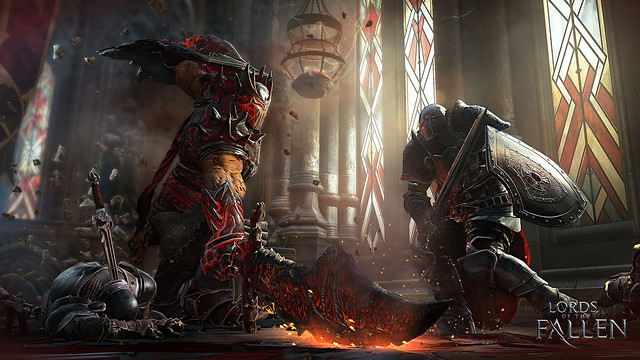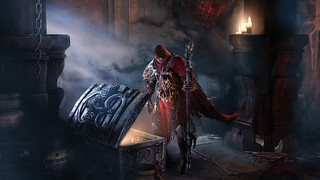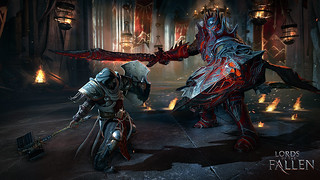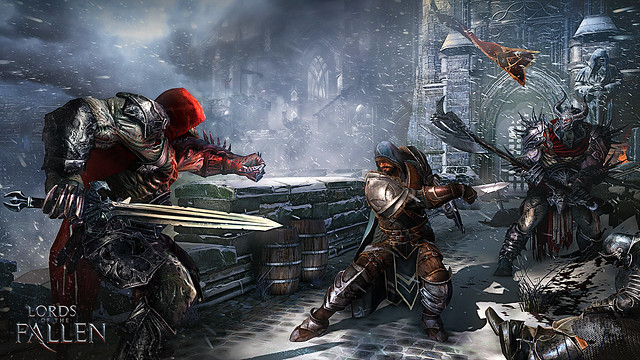I’ve seen my share of challenging games, and I loved a whole lot of them. And honestly speaking, I could never put up with so many people that quit playing them early. But I’ve come around full circle to the point where I don’t see their impatience as a shortcoming anymore. There’s room for improvement in game design. And I believe that the team behind Lords of the Fallen on PS4 is after something that will narrow the gap between mainstream and core players. One bit at a time, that is.
First things first: we decided that if there’s a main feature of Lords of the Fallen that will be complex and challenging, the rest should be more or less streamlined. I’m not trying to say that we dumbed down anything. Take books written by Dan Brown or Harlan Coben, for example; they’re not deprived of any intellectual value. They’ve been skillfully written for the mainstream audience, so… why not games?
Lords of the Fallen will try to tell a story without imposing it. You won’t have to remember that the Fallen God’s name is Adyr to face him. You won’t have to memorize the names of crucial NPCs to follow their plots. But I’m pretty sure some people will really want to; and that’s enough.
You can get going just from the old legend that speaks about humanity defeating its god thousands of years ago, and then taking up the belief that it can completely wipe evil out of human nature. You might dig deeper and find out that people decided to write down the codex of the most deadly sins and that anyone caught committing them will forever be marked with a tattoo on his or her face, but your game experience will not be hindered if you lack that information.
Most of the lore will be spread across the world in audio memoirs written by various inhabitants of our world. Most of the cinematics will focus on introducing players to the important enemies and combat events, while only the pivotal plot points and twists will feature movie-like scenes and camera-directed conversations. User interface and HUD will not be heavily ornamented, nor occupy unnecessary screen space.
When it comes to the combat system, we’re giving it as many sub-systems and dependencies as we want. Elemental damage? Sure, we’ve got quite a bit of that. Crafting? Of course — weapons, shields, and armor. Attribute weapon scaling? Just make sure you pick the right one. Do weapon move sets vary? Yup, with damage, speed, distance, types of combos, and attack chains. But bear in mind that there’s still a lot they have in common, so once you’ve learned that any attack initiated straight out of an evasive roll gives you that extra bit of distance and stability, you naturally apply that knowledge across all weapons.
There will be things tightly bound to a particular gear item, like perks, as well as universal features that work anytime and anywhere — like perfect timing for attacks, or charging. Bottom line: challenging games can be so much fun if they’re served up well. Meaning, the players can choose their own pace for learning the core mechanics.
Lords of the Fallen has been in development for some time, and we’ve shown the game to a wider audience a couple of times. So far we’ve been showing parts of the opening chapter, set within an Old Monastery just about the time when Harkyn, our hero, arrives alongside his mentor. The two are trying to figure out what made demons return after millennia have passed.
At the beginning of the game, the Monastery is pretty much a whole world to the player, so it feels like people can get familiar with the human realms and see how things work here. Then, we want people to venture off into the demonic dimension to get perspective and, well, be presented with the demons’ own reasons for why they do what they do.
And last but not least, Harkyn will finally be ready to descend deeper underground into where people believe the gigantic body of a Fallen God lies, and where he must be faced. There’s more than one ending in Lords of the Fallen, and together with a New Game + feature, we believe the experience will be worth replaying.










